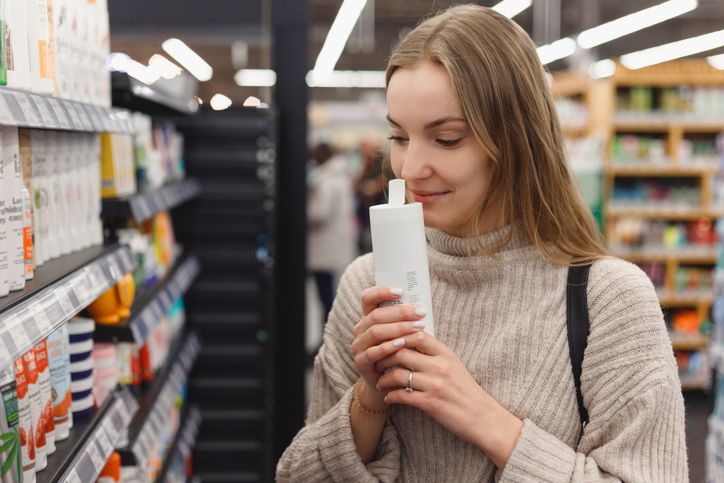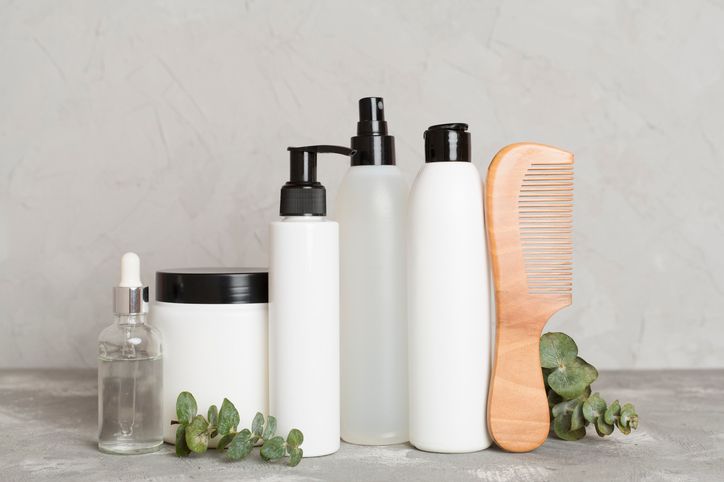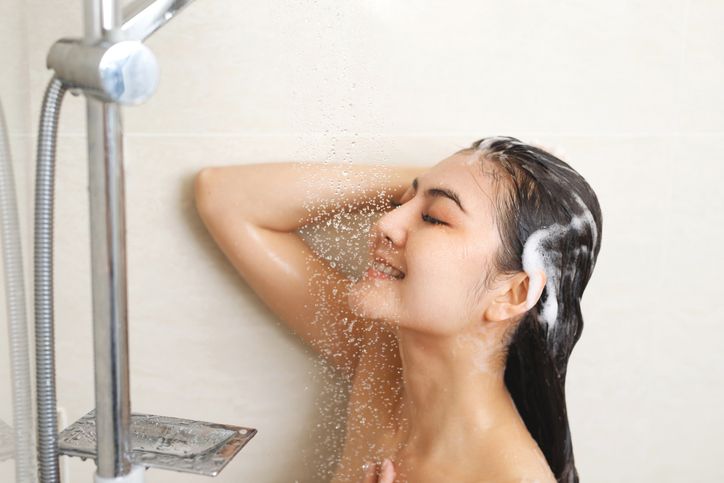
- Home
- Trend
- Weight Loss Strategies
- Acne Tips
- Hair Health Information
- Blemish Removal Tips
- Acne Scar Removal Tips
- Muscle Building Techniques
- Intimate Care Tips
- Postpartum Intimate Care
- Eye Bags Wiki
- Tips for Face Slimming
- Secret of Permanent Hair Removal
- Breast Enlargement Tips
- Cure to Snoring
- Marionette Lines
- Skin-Tightening Secrets
Hong Kong is a city known for its high stress levels and hot, humid climate. “Stress-induced scalp acne” isn’t just a teenage problem—it can happen to adult women too, especially if you’re constantly anxious, have irregular routines, eat heavy-flavored foods, and frequently wear hats that trap heat against your scalp. When stress increases, the sebaceous glands produce more oil. Combine that with clogged hair follicles and bacterial growth, and it leads straight to stress-induced scalp acne!
What Causes Scalp Acne? More Than Just One Trigger!

1. Excessive Stress
Stress disrupts hormonal balance and weakens the immune system, which can increase oil production and make pores more prone to clogging—creating the perfect environment for scalp folliculitis. The buildup of sebum in the follicles, along with bacterial growth (like Staphylococcus aureus), often results in pus-filled pimples on the scalp.
2. Hormonal Fluctuations
Women experience hormonal changes during menstruation, pregnancy, breastfeeding, and menopause. These shifts can overstimulate sebum production, making the scalp greasier and more prone to clogged follicles, increasing the risk of scalp acne.
3. Poor Scalp Hygiene
Some women wash their hair too infrequently or use hair products filled with harsh chemicals. Over time, this leads to an accumulation of dead skin, dirt, and oil—especially problematic for those with sensitive or inflammation-prone scalps.
4. Improper Use of Styling Products
Hair sprays, waxes, and perming agents can clog hair follicles—especially in humid environments—making scalp acne more likely.
5. Unhealthy Diet & Lifestyle
Frequent consumption of spicy or fried foods, irregular sleep patterns, and not drinking enough water can disrupt metabolism and hormone levels. This may overstimulate the sebaceous glands, turning your scalp into a breeding ground for acne.
How to Identify Scalp Acne? What Are the Symptoms?
If you feel bumps, redness, itching, or pain on your scalp when washing your hair—and even see white or yellow pus—those are signs of scalp acne:
• Small bumps or pustules along the scalp or hairline
• Intense itching, even during sleep
• Stinging or abnormal sensations when shampooing
• Oily scalp and limp, flat hair
• Sometimes accompanied by dermatitis or extending to surrounding skin areas
Many people dismiss early signs as “normal pimples” that will go away on their own. But scratching often worsens the condition and may lead to infection.
免費體驗
F8 Hair Regrowth Treatment
1 Minute Self-Registration
Date should not be before minimal date
Treatment & Care Tips|Don't Delay—Scalp Acne Can Become Folliculitis!
1. Use Gentle Hair Care Products
The first step is to choose shampoos tailored to your scalp condition. Avoid random over-the-counter picks and opt for products designed for treating scalp acne or related issues. Look for ingredients like:
• Tea Tree Oil: Natural antibacterial that relieves itching and reduces inflammation—great for early-stage acne or prevention.
• Salicylic Acid: Gently exfoliates and prevents follicle clogging while regulating oil production.
• Honeysuckle / Sophora Root: Traditional herbal ingredients known for clearing heat and toxins, especially helpful for persistent inflammation and “damp-heat” body types.
Avoid shampoos with silicones, synthetic fragrances, or strong surfactants, which can worsen scalp inflammation.
2. Improve Daily Habits to Support Skin Health
Since stress acne is closely linked to lifestyle, long-term improvement depends on changing daily routines:
• Stick to a regular sleep schedule: Late nights and insomnia affect hormone regulation and oil production.
• Eat a balanced diet: Reduce fried or spicy foods. Eat more zinc- and B-vitamin-rich foods to promote skin repair.
• Stay hydrated: Water helps flush out toxins and reduce acne breakouts.
• Manage stress: Chronic stress worsens skin conditions. Try yoga, meditation, nature walks, or relaxing music to unwind.
Consistent good habits can significantly reduce the root causes of scalp acne.
3. Seek Medical Treatment If Needed
If scalp issues persist despite good care, consult a dermatologist. Common treatments include:
• Topical or oral antibiotics: For folliculitis caused by bacterial infections.
• Medicated shampoos: Containing ingredients like zinc pyrithione or ketoconazole to treat fungal or seborrheic conditions.
• Blue or red light therapy: Reduces inflammation, kills bacteria, and helps control oil production.
Professional treatments can accelerate healing and minimize scarring.
4. Be Cautious with Hair Dyes and Perms
Many women habitually dye or perm their hair, but these practices can aggravate scalp acne. The chemicals used may irritate inflamed skin. Avoid such treatments when experiencing scalp breakouts.
If styling is essential, wait until your scalp is stable, choose non-irritating formulas, and always cleanse thoroughly before and after styling to prevent clogged follicles.
FAQ: What If Scalp Acne Keeps Coming Back?

Many people ask: “I’ve tried countless shampoos and essential oils—why does my scalp acne keep returning?”
You may be overlooking these factors:
• Scalp is too dry or too oily: An imbalanced oil-moisture level is a major cause. Over-washing isn’t the solution—proper balance is key.
• Wrong products: Some anti-oil shampoos are too harsh and damage the scalp’s natural barrier.
• Inadequate cleansing: Residues from styling products or shampoo can block follicles.
• Chronic follicle inflammation: Makes the scalp fragile and prone to flare-ups.
• Weakened immune system: Those with poor health are more susceptible to bacterial infections and should focus on nutrition and internal balance.
There’s no one-size-fits-all solution. Understanding your personal triggers and addressing them through skincare, diet, treatment, and mindset is the only effective way forward.
Scalp Acne Is No Small Matter—It Can Even Lead to Hair Loss!
Don’t underestimate scalp acne as just “a pimple.” It can signal inflammation, damaged follicles, and even hair loss. Itchiness is annoying, but what’s worse is seeing more and more strands falling out every day. As the parting widens and hair loses volume, that’s when people realize the problem is serious.
True scalp repair goes beyond switching shampoos. You need a comprehensive scalp care plan—products, lifestyle changes, stress management, and medical treatments when needed.
Healthy scalp = healthy hair. Don’t wait until you’re losing clumps of hair—take timely, precise, and comprehensive action!
免費體驗
F8 Hair Regrowth Treatment
1 Minute Self-Registration
Date should not be before minimal date
Can Stress-Induced Scalp Acne Cause Hair Loss?
Many women worry: “I keep getting scalp acne—will I go bald?”
The answer: It’s possible—especially if left untreated or handled improperly.
When scalp acne becomes severe, chronic inflammation can damage the follicles, weakening or even destroying them. Excessive scratching or aggressive shampooing can tug on hair roots and worsen the issue. Combine that with hormone imbalance, poor sleep, and nutritional deficiencies, and hair loss becomes more likely.
But don’t panic. If you act early—recognize symptoms, treat correctly, use suitable shampoos, and maintain a clean scalp—your hair can grow back, often even healthier than before. Consider low-level laser therapy to revitalize the scalp and stimulate hair regrowth.
Suffering Hair Loss from Oily Scalp & Stress Acne? The F8 Hair Regrowth Treatment Can Help!
Chronic scalp acne and inflammation damage hair follicles, weakening them until they shrink or stop functioning altogether—causing visible thinning or patchy hair loss. Even after the acne clears, damaged follicles may not bounce back on their own, resulting in persistent widening of the part or overall hair thinning.
For this type of hair loss caused by stress, scalp issues, or persistent acne, Perfect Medical’s F8 Hair Regrowth Treatment offers a non-invasive, painless, and effective solution—no injections, no downtime, and you can go straight back to work or school after the session.
How Does F8 Help You Regain Healthy Hair?
• Low-Level Laser Technology: Uses medical-grade lasers to gently stimulate scalp cells, enhance microcirculation, and repair damaged follicles.
• Non-invasive & Pain-free: Safe and comfortable—even while wearing makeup or in the middle of a busy schedule.
• Noticeable Effects After One Session: Users report immediate improvements in oil control and scalp balance. With continued treatment, you’ll see healthier scalp condition, denser hair growth, and significantly increased hair volume.
The F8 treatment is especially suitable for those struggling with recurring scalp acne, lingering hair thinning, or post-acne follicle damage. If you're looking to restore your scalp ecosystem and bring back voluminous hair, this treatment is worth considering.
Currently offering free trial appointments for the F8 Scalp Treatment! Register now to experience firsthand how the F8 Treatment can transform your scalp health!
Free Trial: Perfect Medical F8 Hair Regrowth Treatment免費體驗
F8 Hair Regrowth Treatment
1 Minute Self-Registration
Date should not be before minimal date
FAQ

What is stress-related scalp acne? Can stress really cause breakouts?
Yes, it’s true! Stress affects your hormones and immune system, leading to excessive oil production and clogged pores. This creates the perfect environment for bacteria to thrive, causing painful and itchy scalp breakouts.
How is stress-related scalp acne different from regular acne?
Scalp acne mainly appears on the scalp, unlike facial acne which is easily visible in the mirror. You often feel the bumps before seeing them—they can be red, swollen, or pus-filled, and they tend to be painful and itchy. In some cases, they may develop into folliculitis and even lead to hair loss if severe.
Can shampoo fix scalp acne?
Not just any shampoo will do. You should opt for shampoos that are antibacterial, oil-controlling, and silicone-free. Ingredients like tea tree oil or salicylic acid can help unclog pores and soothe inflammation.
What should I do if my scalp acne keeps coming back?
You may need to evaluate your lifestyle—lack of sleep, oily diets, or excessive use of styling products are all common culprits. Maintain proper scalp hygiene, manage your stress levels, and stay hydrated. If necessary, consult a dermatologist.
Is scalp acne the same as folliculitis?
Not exactly, but they’re related. Scalp acne is a general term for pimples or inflammation on the scalp. Folliculitis is one common cause—it’s a bacterial infection that leads to inflamed hair follicles. So, while scalp acne can be a sign of folliculitis, not all scalp acne is folliculitis.








